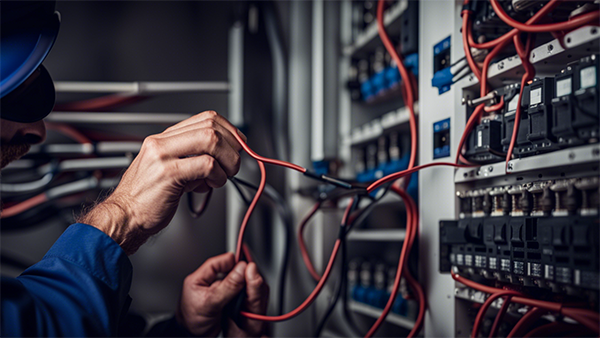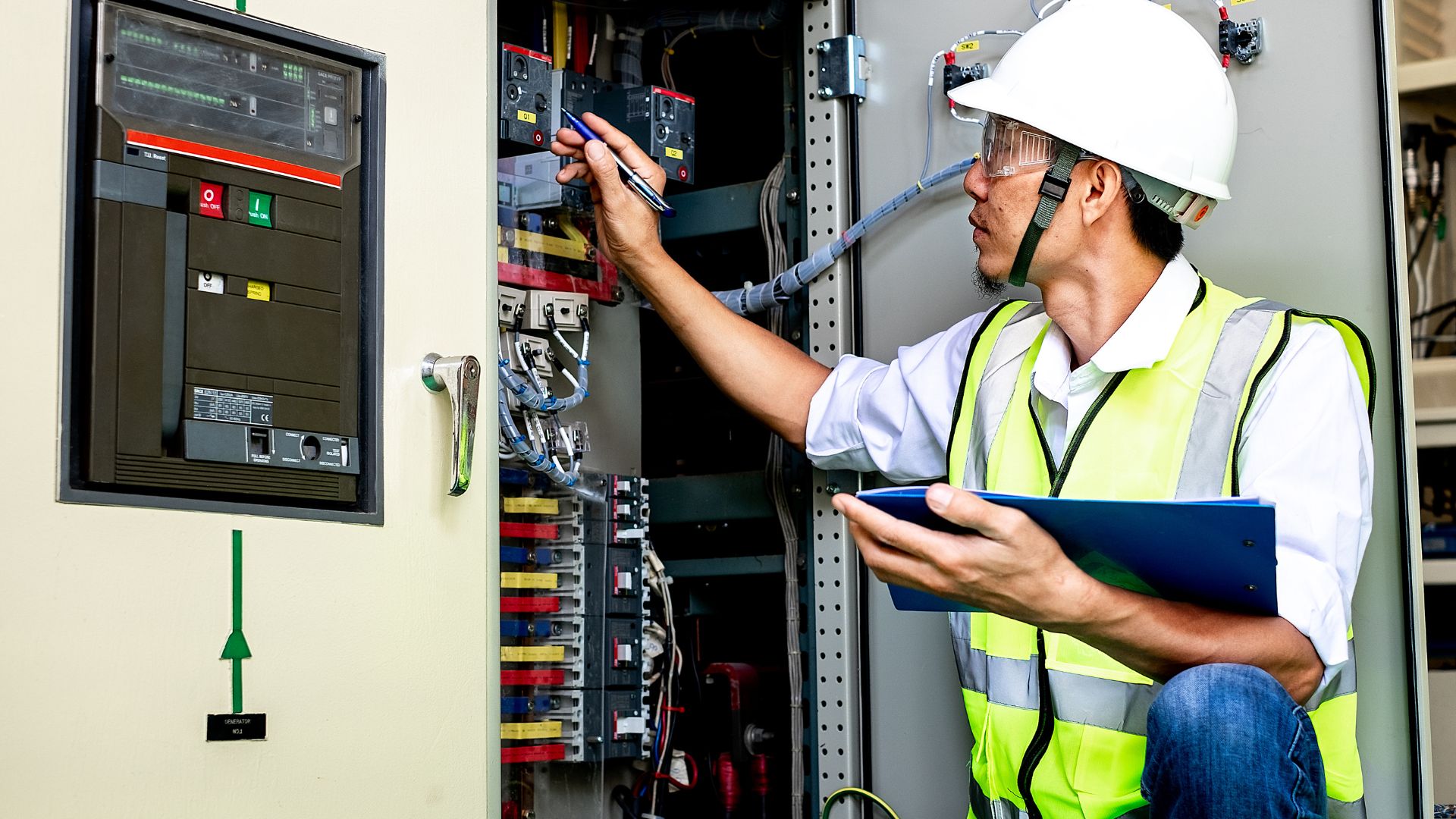Tips for Old Bridge NJ Electrician Projects
Tackling electrical projects in Old Bridge, NJ, requires a blend of knowledge, safety, and precision. Always ensure the power is off before starting any work to prevent accidents. Use high-quality materials to guarantee longevity and reliability. Familiarize yourself with local building codes to avoid any compliance issues. For complex tasks like rewiring or installing new circuits, consider hiring a licensed electrician to ensure everything is up to code and safely installed. Remember, a little caution and preparation go a long way in ensuring successful electrical projects.
Safety First: Power Off Before You Start

Ensuring safety is paramount when tackling any electrical project. The first and most critical step is turning off the power at the circuit breaker to the area where you’ll be working. Electrical injuries can be severe and even fatal, so this precaution cannot be overstated. Before you start, clearly label the circuit breaker panel to avoid confusion. After switching off the breaker, use a voltage tester to verify that the power is indeed off.
This secondary check adds an extra layer of security, as sometimes circuit breakers can be mislabeled or faulty. Remember, working on live wires can lead to electric shock, burns, or other serious injuries. Additionally, make sure to use insulated tools designed for electrical work. Wearing rubber-soled shoes and avoiding wet conditions can also enhance your safety. By diligently following these safety protocols, you can significantly reduce the risk of accidents and ensure a safer working environment.
The Importance of Quality Materials
Choosing high-quality materials is essential for the longevity and safety of any electrical project. Substandard components might be tempting due to their lower cost, but they often lead to frequent breakdowns, posing potential hazards and increased maintenance costs over time. High-quality wires, switches, and outlets from reputable brands ensure better performance and reliability. For instance, using copper wiring instead of aluminum can prevent many issues, as copper is a better conductor and more durable.
Similarly, investing in high-grade circuit breakers and outlets reduces the risk of electrical fires and ensures consistent operation. Quality materials also come with better warranties and support from manufacturers, providing peace of mind and assurance. Moreover, they are often easier to install and work with, which can save time and reduce frustration during the project. The initial investment in quality materials pays off in the long run through fewer repairs, better safety, and enhanced performance. Always check for UL (Underwriters Laboratories) certification or other recognized standards to ensure the products meet safety and performance benchmarks.
Tools Every Electrician Should Have
Having the right tools is essential for any successful electrical project. Basic tools include wire strippers, pliers, screwdrivers, and a voltage tester. Wire strippers are used to remove the insulation from electrical wires, enabling proper connections. Pliers, particularly needle-nose pliers, are handy for bending, twisting, and cutting wires. A good set of screwdrivers, including both flathead and Phillips, is necessary for various types of screws and terminals. A voltage tester is crucial for ensuring that the power is off before beginning work.
For more advanced projects, investing in a multimeter can be invaluable. This tool measures voltage, current, and resistance, helping to diagnose electrical issues. A circuit finder is useful for identifying which breaker controls a specific outlet or fixture, especially in large or complex electrical systems. Fish tape is essential for pulling wires through conduits and tight spaces. Additionally, having a reliable flashlight and a sturdy tool belt can enhance efficiency and safety, keeping tools organized and within reach. Using the right tools not only makes the job easier but also ensures accuracy and reduces the risk of mistakes.
DIY Tips for Simple Electrical Tasks

For those confident in their DIY skills, tackling simple electrical tasks can be rewarding and cost-effective. Start by ensuring the power is off at the breaker panel, and use a voltage tester to confirm. When replacing a light switch or installing a new outlet, carefully note the wiring configuration and use high-quality components. Follow safety precautions, local building codes, and manufacturer’s instructions. Double-check connections and test with a voltage tester before restoring power. If unsure at any point, consult a professional to ensure safety and proper installation.
Ensure Safety First
Always start by turning off the power at the breaker panel to avoid any risk of electric shock. Using a voltage tester is crucial to confirm that the circuit is indeed de-energized. This step is fundamental to protecting yourself and ensuring that no current is flowing through the wires you’ll be working on. Double-checking this can prevent accidents and ensure a safer working environment.
Document Wiring Configuration
Before you disconnect any wires from the old switch or outlet, carefully note or take a photo of the existing wiring setup. This documentation is essential for ensuring that you can reconnect the new switch or outlet correctly. Accurate documentation helps avoid confusion and mistakes during reinstallation, ensuring that each wire is connected to the correct terminal.
Use Quality Components
Opt for high-quality electrical components, such as switches, outlets, and wiring, to ensure longevity and safety. High-quality materials are less likely to fail or cause problems over time. They offer better performance and reliability, which can prevent frequent repairs and potential hazards. Investing in reputable brands also often provides better warranties and support.
Follow Guidelines
Adhere to all safety precautions, local building codes, and the manufacturer’s instructions during your project. Building codes are designed to ensure that electrical systems are safe and reliable. Following these guidelines helps you stay compliant with legal requirements and ensures that your work meets safety standards, reducing the risk of accidents or future issues.
Double-Check and Test
After completing your installation, carefully double-check all connections to ensure they are secure and correctly installed. Use a voltage tester to verify that everything is functioning properly before turning the power back on. This final check is crucial for identifying any issues that may need correction. If you encounter any uncertainties or problems, don't hesitate to consult a licensed electrician to ensure everything is done safely and correctly.
Avoiding Common Electrical Mistakes
Avoiding common electrical mistakes is crucial for ensuring safety and the successful completion of your project. One frequent error is failing to turn off the power before starting work, which can lead to serious injuries. Always double-check that the circuit is de-energized using a voltage tester. Another common mistake is using the wrong wire size for the circuit, which can cause overheating and potentially lead to fires. Ensure you use the correct gauge wire specified for the amperage of the circuit.
Poor connections, such as loose or improperly secured wires, can create resistance points that generate heat and pose a fire hazard. Make sure all connections are tight and secure, and use wire nuts or terminal blocks where appropriate. Overloading circuits by connecting too many devices can also be dangerous, leading to tripped breakers or even electrical fires. Be mindful of the circuit's capacity and distribute the load appropriately.
Conclusion
Ensuring the success of your electrical projects in Old Bridge, NJ, involves careful planning, adherence to safety protocols, and the use of high-quality materials. By following essential tips such as verifying power is off, documenting wiring setups, and adhering to local building codes, you can significantly reduce risks and achieve reliable results. Whether you're handling simple DIY tasks or more complex electrical work, attention to detail and safety should always be your top priorities. For those who prefer expert assistance, First Class Electric is here to help. Our team of licensed electricians in Old Bridge, NJ, brings years of experience and knowledge to every project, ensuring compliance with all safety standards and regulations.
